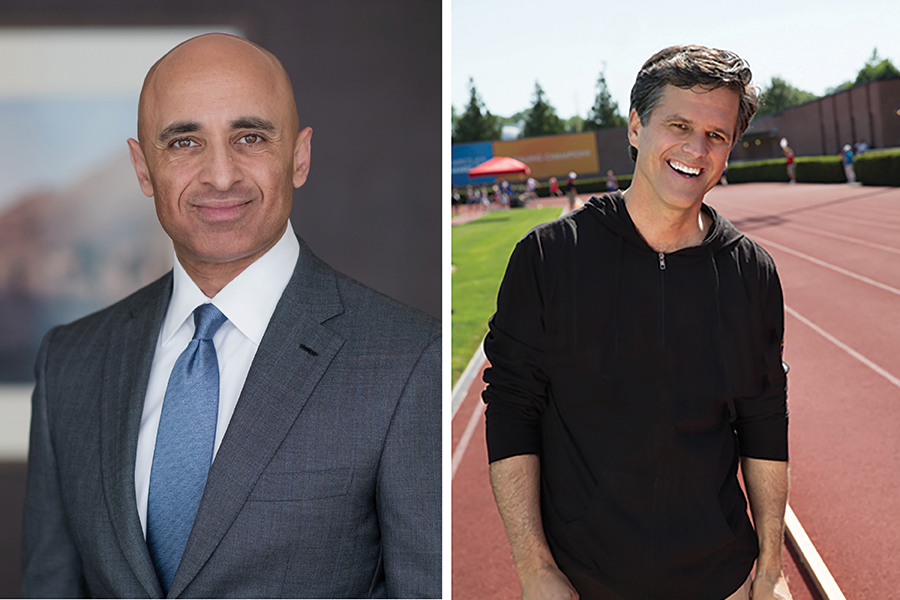How did a member of the Kennedy family in the United States and an ambassador from the United Arab Emirates get together to celebrate kids with intellectual disabilities? In an increasingly connected world, these types of alliances are becoming easier, demonstrating the potential of what can be achieved when people across the planet share a vision, a goal, and place people at the center of their plan.
Tim Shriver, son of Eunice Kennedy Shriver, and Yousef Al Otaiba, the United Arab Emirates ambassador to the United States, joined forces to host the first Special Olympics World Games in Abu Dhabi last year. The event, celebrating the sporting achievements of young people with intellectual disabilities, was the first time the games had been hosted in the Middle East and North African region. While much of the world grapples with social distancing and isolation for the very first time, the 5.6 million athletes in 200 countries served by Special Olympics have been battling these issues since birth. “The pain of separation has always existed in their world,” says Shriver of the athletes. “We have a completely different leadership message. It’s all about everyone being equal.”
“Kids must be taught the skill of being an ‘includer,’” says Shriver, the chairman of Special Olympics. “There’s actually a mindset that is teachable around this. If you’re constantly told you don’t belong, it will eventually reinforce itself. Attitudes of mass destruction are the most dangerous things on Earth.”
“Special Olympics was unheard of in the Middle East until three years ago, but based on its success, the UAE is working on keeping the momentum going,” says Al Otaiba. “The misunderstanding around intellectual disabilities has almost evaporated since the Abu Dhabi games. The relationship with other countries during the games highlighted the fact that we share basic human values — something beyond politics and diplomatic relationships. The most effective diplomats I’ve ever come across can put themselves in the shoes of others,” says Al Otaiba. “If you want to persuade others to adopt your idea, you first need to understand how they’ll view it from their perspective. It’s basic humanity and doesn’t take the skill of a CEO. I’m refreshed, inspired, and happy every time I speak with a group of young people. I feel hopeful that we’ll all be in good hands in the future. If a country keeps focused on its North Star, it will eventually succeed.”
One such North Star is the UAE space program. When Al Otaiba recently asked Sarah al-Amiri, the woman leading the UAE Mars mission, “Why Mars?” she replied, “It gives hope and keeps people looking forward, but also encourages more young people to study science, math, and engineering. It will also create a pool of talent that we’ll need for other programs here on Earth. You can have both an operational and aspirational element to any new project.”
As part of the World Games legacy, Shriver and Al Otaiba teamed up again in July to announce a $25 million gift for Special Olympics Unified Champion Schools™, courtesy of the Crown Prince of Abu Dhabi. The funds will help promote and support social inclusion in six countries outside of the UAE. “The words and attitudes we share with our kids at home are equally important to what they’re taught at school,” says Al Otaiba. “Inclusion starts at home and is especially relevant now with so many kids staying at home from the pandemic. At a national level, the more you include young voices in decision-making, the more you’ll benefit as a country.”
“People are starving to be heard,” says Shriver. “So many things right now are making people feel unseen, overwhelmed by events. The next generation of leaders will understand that the next big leadership skill is deep, consistent, ongoing listening.”




































